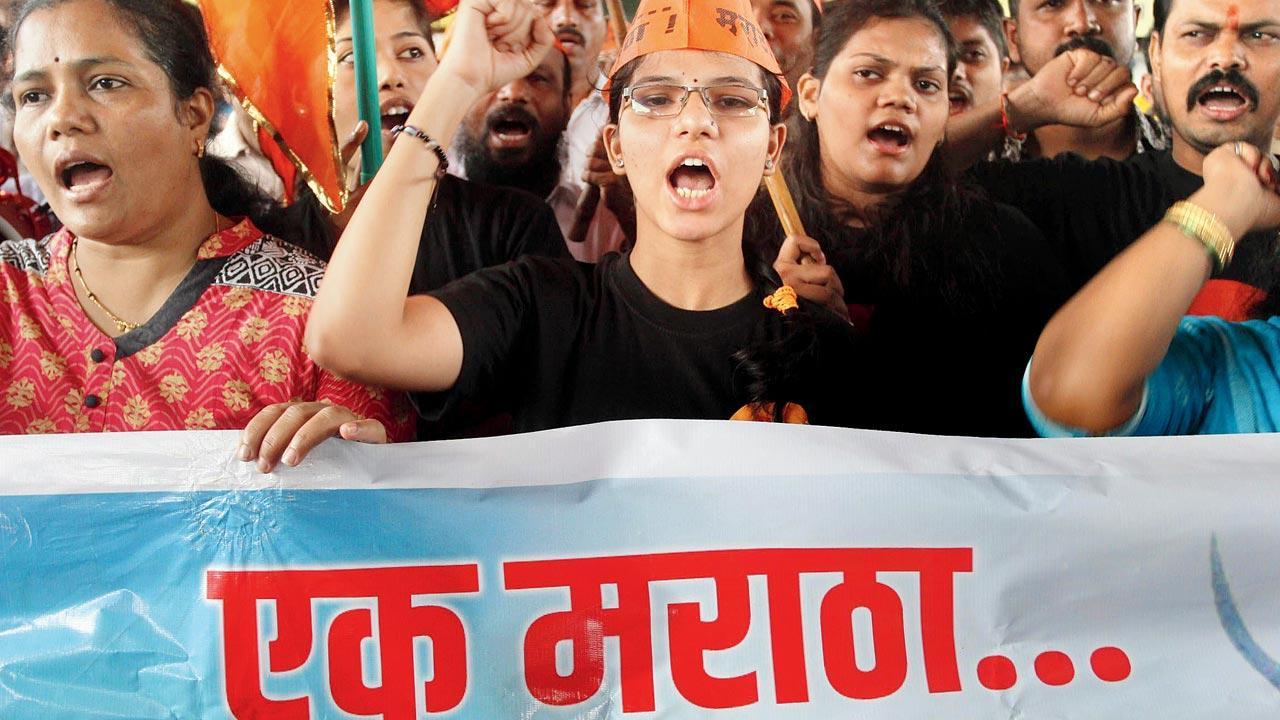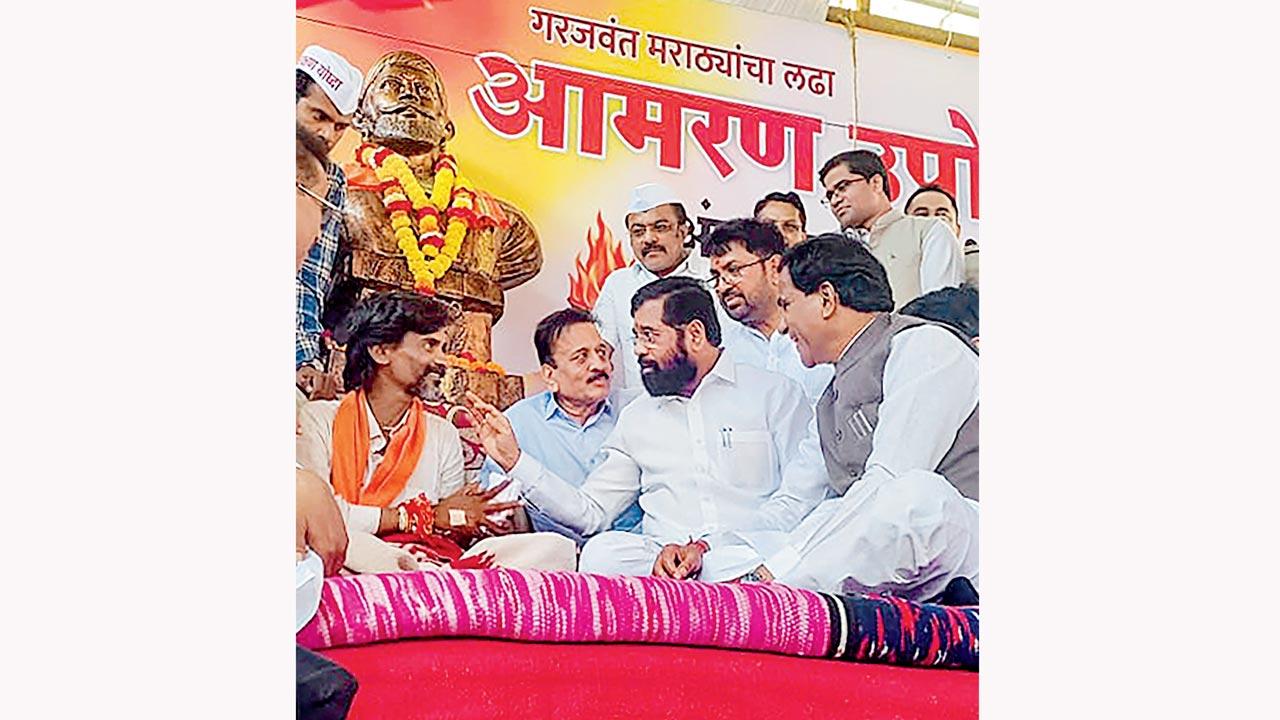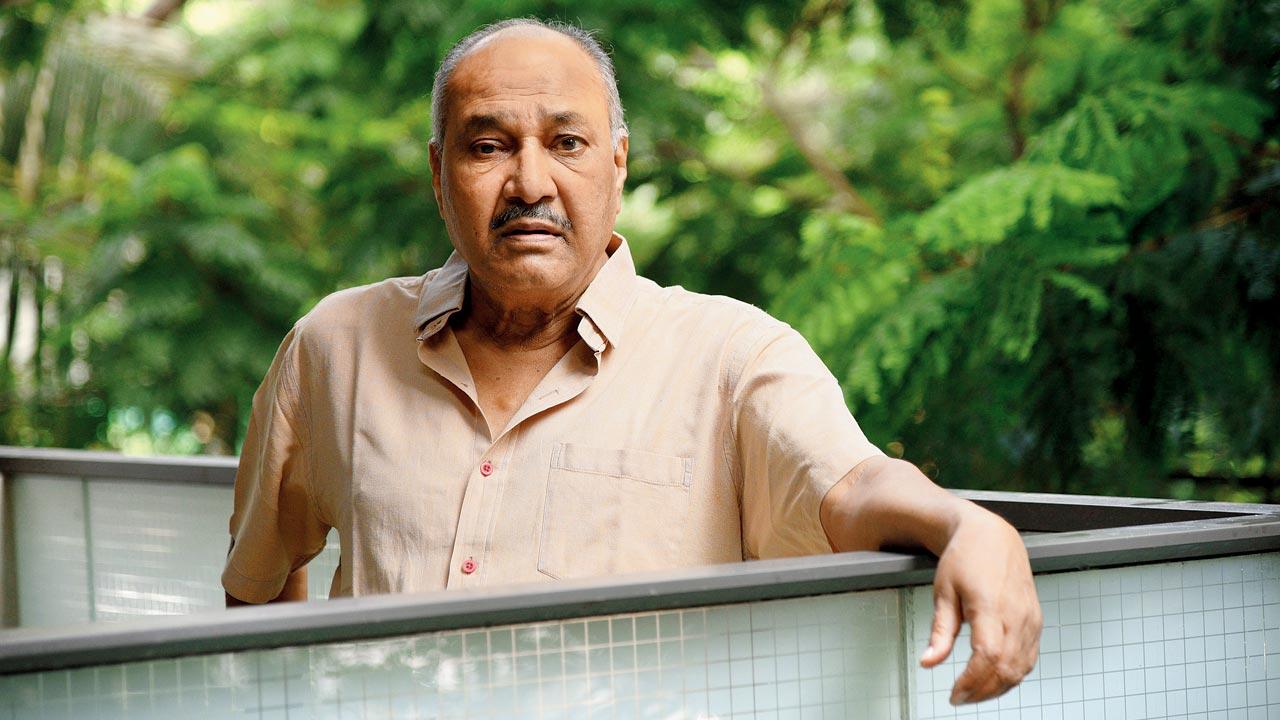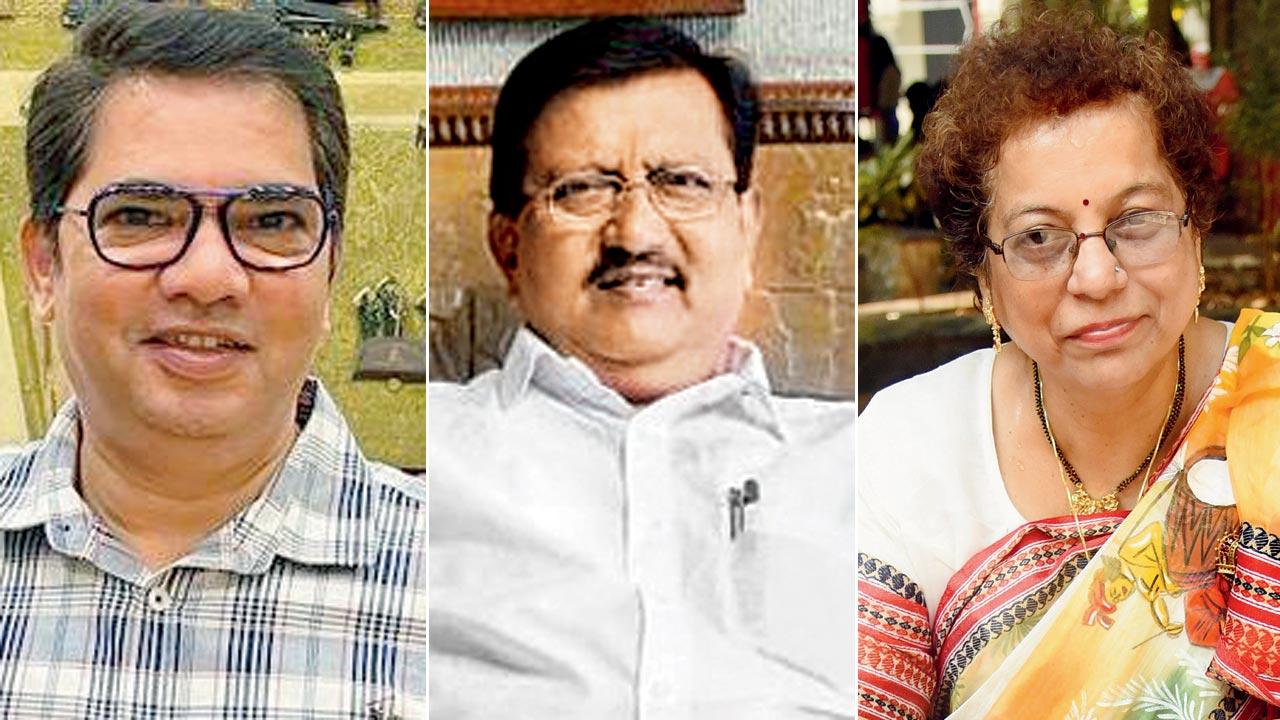While state govt representatives will soon be visiting Hyderabad to look for Nizam-era documents that might be the key to extending OBC tag to Marathas, experts say reservation policy won’t resolve the current crisis the community is facing

Maratha Kranti Morcha activists protest during a Maharashtra Bandh, on July 25, 2018 in Mumbai. The outfit is among the groups spearheading the agitation for quota for the Maratha community in jobs and education. File pic/Getty Images
In 1990, when the VP Singh-led government accepted the Mandal Commission report, providing 27 per cent reservation to Other Backward Classes (OBCs), the Maratha community of Maharashtra felt cheated and alienated.
ADVERTISEMENT
The Marathas had been excluded from the list, leading to extreme unrest within the community. What followed was a three-decade-long stir for reservation, both in jobs and education, which came to a boil earlier this month, when a sit-in protest and hunger strike by Maratha activist and farmer Manoj Jarange-Patil turned violent in Jalna, leading to 40 police personnel and civilians being injured.
 CM Eknath Shinde meets farmer and Maratha activist Manoj Jarange-Patil, who has been on a hunger strike for the demand of reservation in Antarwali Sarati village of Jalna district. Jarange-Patil called off his strike on Thursday. Pic/PTI
CM Eknath Shinde meets farmer and Maratha activist Manoj Jarange-Patil, who has been on a hunger strike for the demand of reservation in Antarwali Sarati village of Jalna district. Jarange-Patil called off his strike on Thursday. Pic/PTI
Amidst high drama, Jarange-Patil demanded that Marathas be given a Kunbi certificate, a sub-caste recognised as OBC, so that the Marathas can get an OBC concession. He refused to break his fast until the demand was met. On Thursday, Jarange-Patil finally ended his hunger strike after CM Eknath Shinde personally visited him, fed him orange juice, and assured to resolve the issue.
Maratha Mahasangh leader Virendra Pawar says the community has long been disillusioned by the reservation policy.
 Senior journalist Pratap Asabe, who hails from Solapur, one of the cities that has a large Maratha population, feels that reservation might do a disservice to the community. Pic/Satej Shinde
Senior journalist Pratap Asabe, who hails from Solapur, one of the cities that has a large Maratha population, feels that reservation might do a disservice to the community. Pic/Satej Shinde
“Initially, the Maratha community had opposed it, because it was caste-based. We felt that reservation in both educational institutions and jobs should be given on economic parameters and for those who qualify as ‘economically weak’. But nobody paid heed to our demand,” he says over a phone call.
“Since the only way to get any reservation was via caste, the then Maratha leader Shashikanth Pawar demanded that the state government declare the Marathas as Kunbis,” he explains.
 Virendra Pawar, Prakash Shengde and Dr Anita Rane- Kothare
Virendra Pawar, Prakash Shengde and Dr Anita Rane- Kothare
The Kunbi community, which was included in the OBC list by the Mandal Community, is largely agrarian. According to Dr Anita Rane-Kothare, head of department of Ancient Indian Culture and Archaeology at St Xavier’s College, the Kunbis are a group of people who originally resided in the Marathwada and Vidarbha regions that today are part of Maharashtra. “They belonged to the farming community, and their main occupation was agriculture,” she says. In the Hindu social order, they are part of the third varna, which is the Vaishyas, and were hence, considered a lower caste.
How, then are they related to the Marathas, who comprise 35 per cent of the state’s population and were traditionally known to be part of the warrior clan—kshatriyas—from the western Deccan plateau? “At some point, some of the Kunbis travelled to Sahyadris, in search of a livelihood. They settled on the Deccan plateau, where they received farming opportunities, working for land-owners. That’s when they came in contact with Chhatrapati Shivaji, who enlisted them into the army that he was building,” says Rane-Kothare. These members of the Kunbi group were elevated to the status of Kshatriyas, were given lands as jagir, and came to be identified as Marathas.
The demand for Kunbi certificates to Marathas received renewed attention after the Supreme Court in 2021 set aside the state government’s law for Maratha reservation.
Back in 2018, the Devendra Fadnavis-led state government pushed for inclusion of the Marathas in the OBC category. As per news reports, the Maharashtra State Backward Class Commission, which submitted its report on the social and economic conditions of the community had, at the time recommended that reservation be granted to them without disturbing the quota granted to OBC.
The government had proposed giving 16 per cent reservation to the Marathas, but the Bombay High Court brought it down to 13 per cent in jobs and 12 per cent in education. The Supreme Court, however, quashed it, stating that the reservation in the state could not cross the limit of 50 per cent.
During his sit-in protest, Jarange-Patil alluded to a certificate given to Marathas hailing from the Marathwada region of Maharashtra, which was part of the Nizam-ruled Hyderabad state until 1948. The certificate, he claimed, mentioned them as ‘Kunbi’; Jarange-Patil has demanded that the certificate now be extended to every Maratha.
On Thursday, a state representative said that a team of serving and retired officials of the Maharashtra government and language experts would be visiting Hyderabad to look for Nizam-era documents related to the Kunbi community living in the Marathwada region. Based on the documents, the Maharashtra government will decide whether to give Kunbi caste certificates to the Marathas, whose ancestors were described as Kunbi in Nizam-era documents, according to news reports. “Maratha is Kunbi and vice versa, so the demand is valid and so is Jarange’s request that all Maratha’s be given this certificate,” says Pawar.
One of the criticisms against the Maratha community is that many of them are landowning and politically influential. Pratap Asabe, a senior independent journalist, who hails from Solapur, one of the cities that has a large Maratha population, says, “Growing up in Solapur, the elders or the educated among the Maratha community would often take care of educating the children in the city and surround areas.” His grandfather, he says, was taught by one of them, “and that is why my father and then my siblings and I benefited from the same”. “But, in the past few decades, the Maratha youth have fallen behind. This is because the land parcel their family depended upon has remained the same, but the mouths to be fed have increased.” As a result, a lot of Marathas have only five acres of agricultural land for each family, he says.
While Asabe does not deny that a large fraction of the Maratha community needs help, he feels that reservation might be a disservice to the people, “History has shown us that when a particular community or caste gets reservation they get extremely communal. This means that they do not mingle with people from other communities, and that there are no marriages between two communities.”
Instead, he says that there’s a need for Maratha-specific educational policies, so that they do not have to compete to get admission. “We also need to carry out a review of industries that do not have Maratha representation,” he adds. He fears that we might be missing the forest for the trees. “We have an extremely serious issue of lack of government jobs, because government after government is not keen on creating jobs and is instead favouring privatisation.”
Ex-NCP MLA and OBC Sangharsh Samanvay Samiti president Prakash Shendge has vehemently opposed the Maratha demand. He says the OBCs “have got the 27 per cent quota after generational suffering and injustices”. “We still have people from the OBC category, who are playing catch up. We have faced abuse to the point that people took a shudhikaran bath because they saw our face,” he says. Members of the OBC category will be carrying out a “lakhacha morcha” outside Mantralaya in October, to protest extending the quota to the Marathas.
According to Asabe and Pawar, what we currently need is a caste census, which will enable both the state and the Centre to take decisions based on data, rather
than sentiment.
In the last 75-plus years, India has carried out seven censuses, but none have been able to replicate the work of JH Hutton. Hutton was obsessed with the indigenous people of India. An anthropologist by training and a civil servant during the British rule, his interest in documenting the people of the Indian subcontinent led to him being appointed as the Census Commissioner of India. At the age of 46, he took on the colossal task of heading the only recorded caste census. This was in 1931.
The Mandal Commission, which was formed in 1979, also relied on data from 1931.
Carrying out a census of this nature and scale will always come with its own challenges. Political interference, for starters. Like Hutton mentioned in his 1931 census report, “…although they [Congress leaders] do not seem to have regarded a census as objectionable in itself, the opportunity for harassing the government seemed too good to be missed, and January, 1931, was notified by the Congress Committee to be observed as Census Boycott Sunday. This boycott was not, however, taken up with any real enthusiasm and... had very little ultimate effect on the taking of the census; but the petty annoyances, resignations and interferences with the preparations for final enumeration very greatly increased the work, the responsibilities and the anxieties of local officers in charge of census work.”
With inputs by Jane Borges
 Subscribe today by clicking the link and stay updated with the latest news!" Click here!
Subscribe today by clicking the link and stay updated with the latest news!" Click here!








